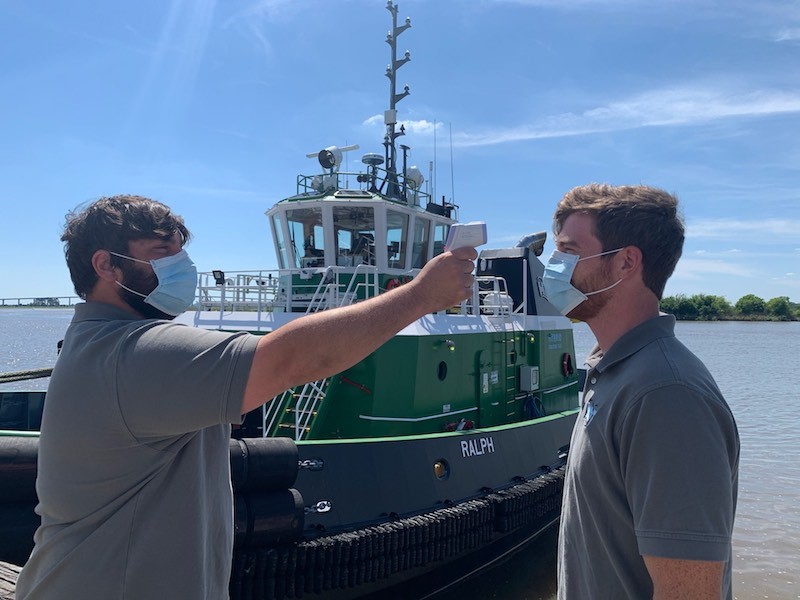The country is moving toward a new normal with Covid-19, considering it a sickness that can be managed like the flu rather than a pandemic that can be controlled.
In May, the Biden administration lifted requirements that foreign travelers, federal workers and contractors and healthcare workers be vaccinated against coronavirus and terminated the pandemic-related public health emergency.
In the inland barge industry, like other industries across the U.S., the new Covid normal had begun much before these restrictions ended.
After enduring extensive Covid measures on vessels and shoreside when the pandemic struck in 2020 and navigating through anti-mask and anti-vaccine sentiments among its employees while keeping boats running during the pandemic, life on the waterways, in ports and company offices is looking very much like it did back in 2019.
Masks have been ditched, infections are way down, crews no longer must keep a six feet distance from coworkers, and sanitation measures on vessels are back to normal routines.
The conversation in the boardrooms of barge operators and at industry conferences has shifted to topics like the labor shortage and Subchapter M compliance. Even though infections are less common but still happening, Covid 19 is literally not on anyone’s radar anymore.
In many ways, dealing with Covid has become another part of the business plan, with barge operators living with it as they do other operational challenges like high or low water.
“We haven’t discussed it in months at the management level,” Peter Stephaich, chairman and CEO of Pittsburgh-based Campbell Transportation, told WorkBoat recently. “We don’t use masks, we encourage anyone not feeling well to not go to work, and we recommend testing (for those who feel ill), and that’s about it. It hasn’t been an issue for us.” Three years ago, Campbell was one of many barge lines that instituted extensive vessel and shore wide anti-Covid measures and encouraged employees to get vaccinated.
“We put our Covid interventions on a dimmer switch that can be raised or lowered as warranted by a fact-backed risk assessment in collaboration with our medical advisers,” explained H. Merritt Lane, president and CEO of Canal Barge in New Orleans.
“Fortunately, at present, we are operating on a ‘business as usual’ basis with extra protocols required when someone either has symptoms or tests positive for Covid. We know we can trust our mariners to assist us in managing the risk both at home and onboard,” said Lane, whose company operates some 1,000 pieces of marine equipment and has 915 employees.




